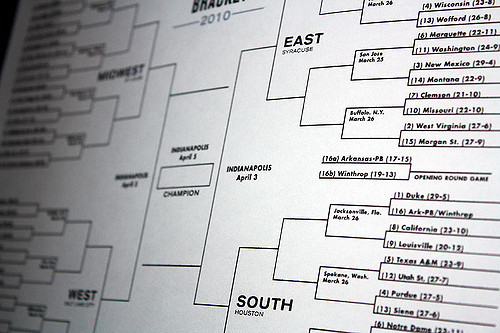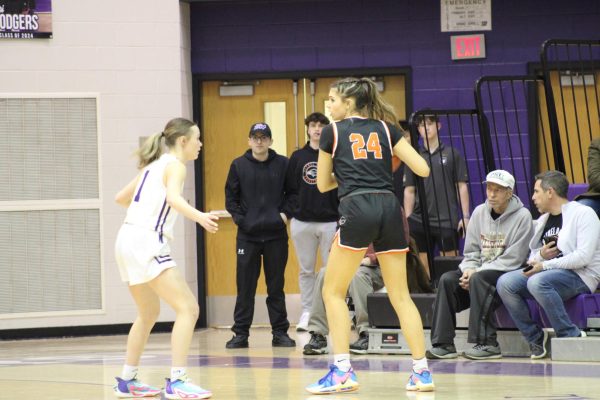March Madness: The almost impossible odds of a perfect bracket

Blank 2010 March Madness bracket
Thursday marked the beginning of the March Madness games. Over 18 million brackets were submitted this year, each one hoping to be perfect. The odds of it happening are basically impossible.
Following the first set of 16 games, only 0.26 brackets remain perfect. There is another set of 16 games Friday and 16 more on Saturday and Sunday. By then, there is a very good chance no brackets will be perfect.
Why is it so hard? I question that myself, too, but the math states it. There are 64 teams divided up into a win-or-go home bracket. In a field of four, there are eight possibilities of how it can go. Turn that field of four into 64, and then have it go all the way to the championship.
The easiest way of finding out the exact number is by math. Take 2^63 and you will get the answer. The exact answer is 9,223,372,036,854,775,808, or 9.2 quintillion rounded. The mathematical odds are 1-in-9.2 quintillion.
If that doesn’t seem hard enough, lets put it to the test. A study found that there are an estimated 3 trillion trees on earth. If you hide a specific acorn in any tree, and you have one guess as to the tree, the mathematical odds of you finding the specific acorn are 300 million times greater than filling out a perfect bracket.
Sure, you can pick the No. 1 seeds, and that increases your odds easily. But, as we saw last year when UMBC beat Virginia, picking the No. 1 seed doesn’t always work out.
Yes, it is mathematically possible for a perfect bracket. But will it ever happen? Probably not, but you never know.

On the local baseball field or at almost every MLB stadium is where you can find Matt Szymanowski.
Now in his second year at BPHS, Matt is a junior...










